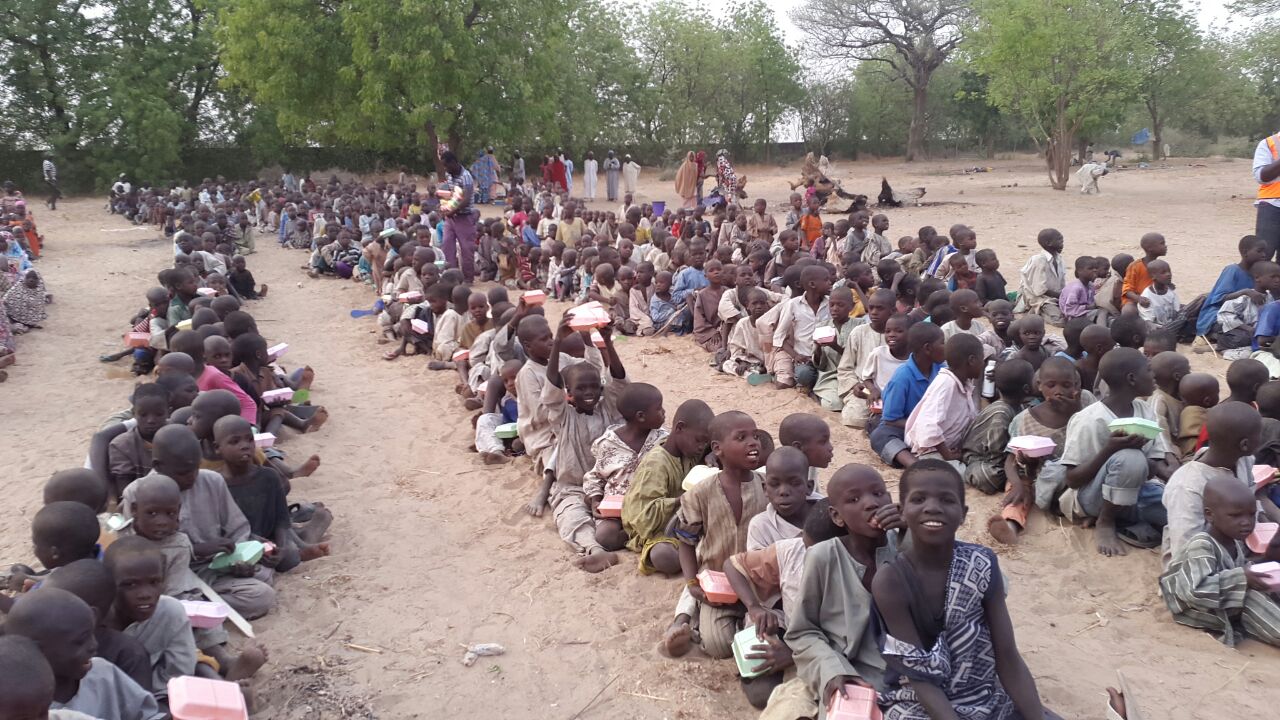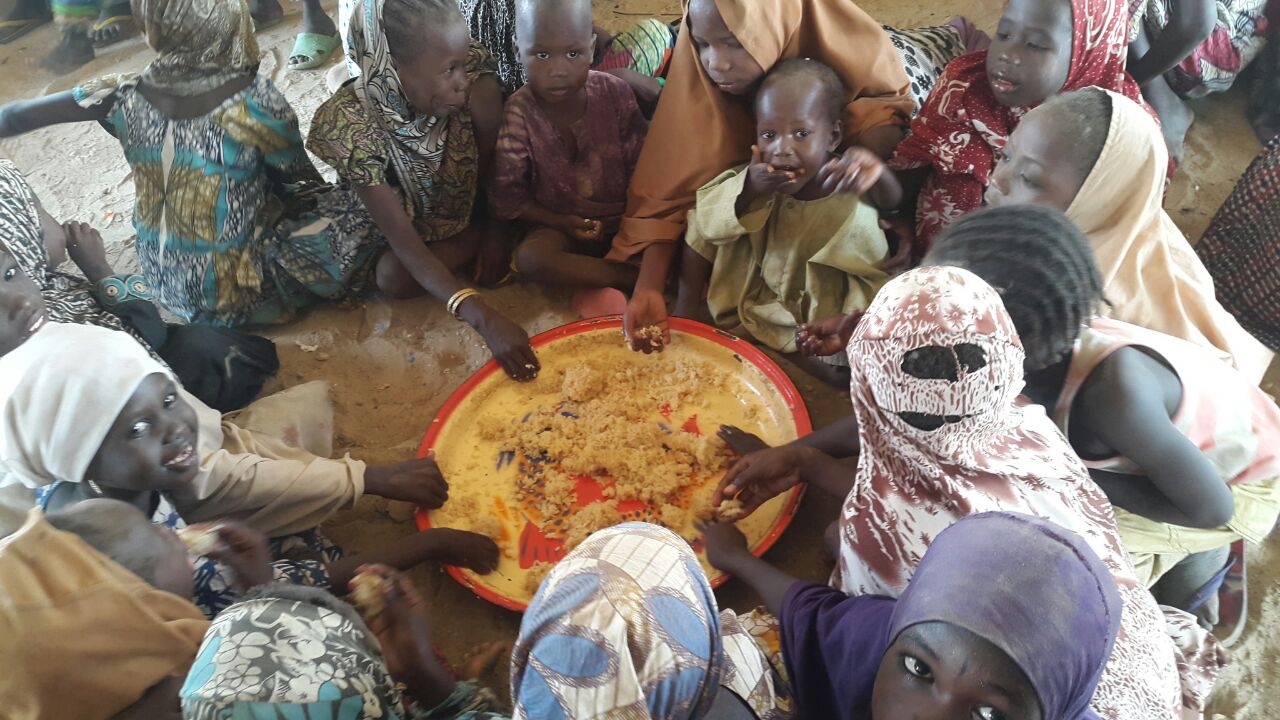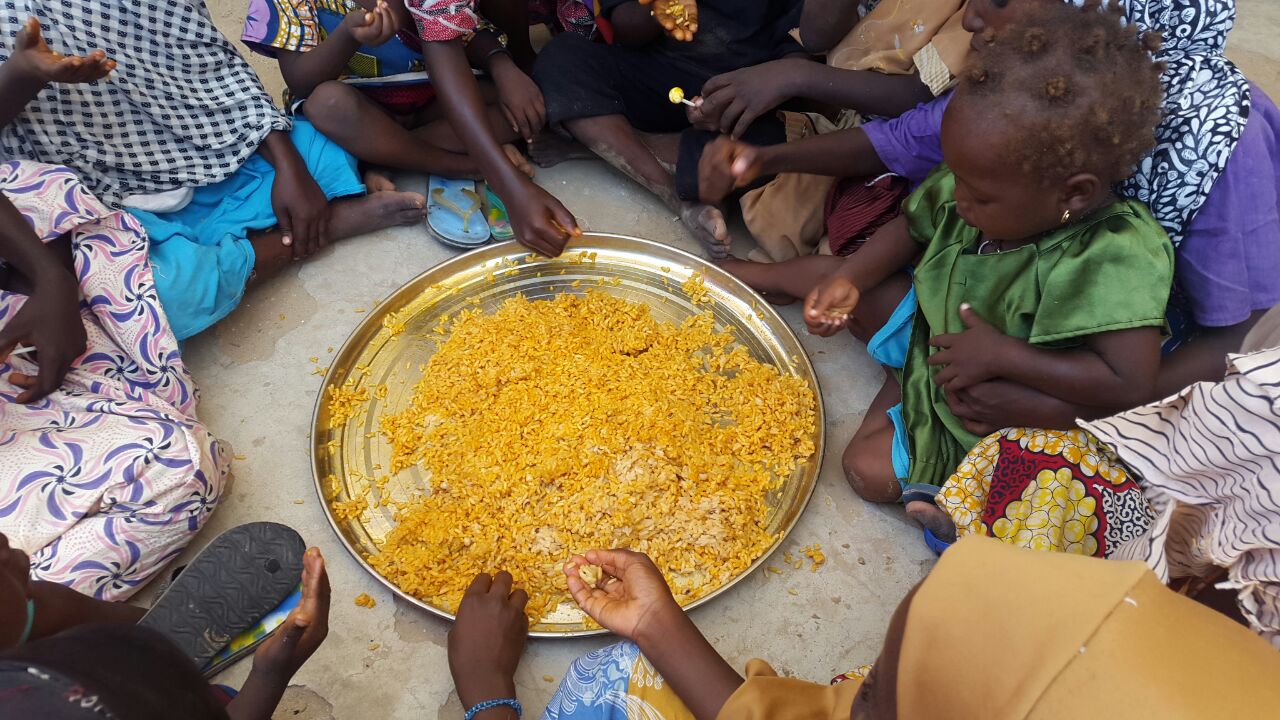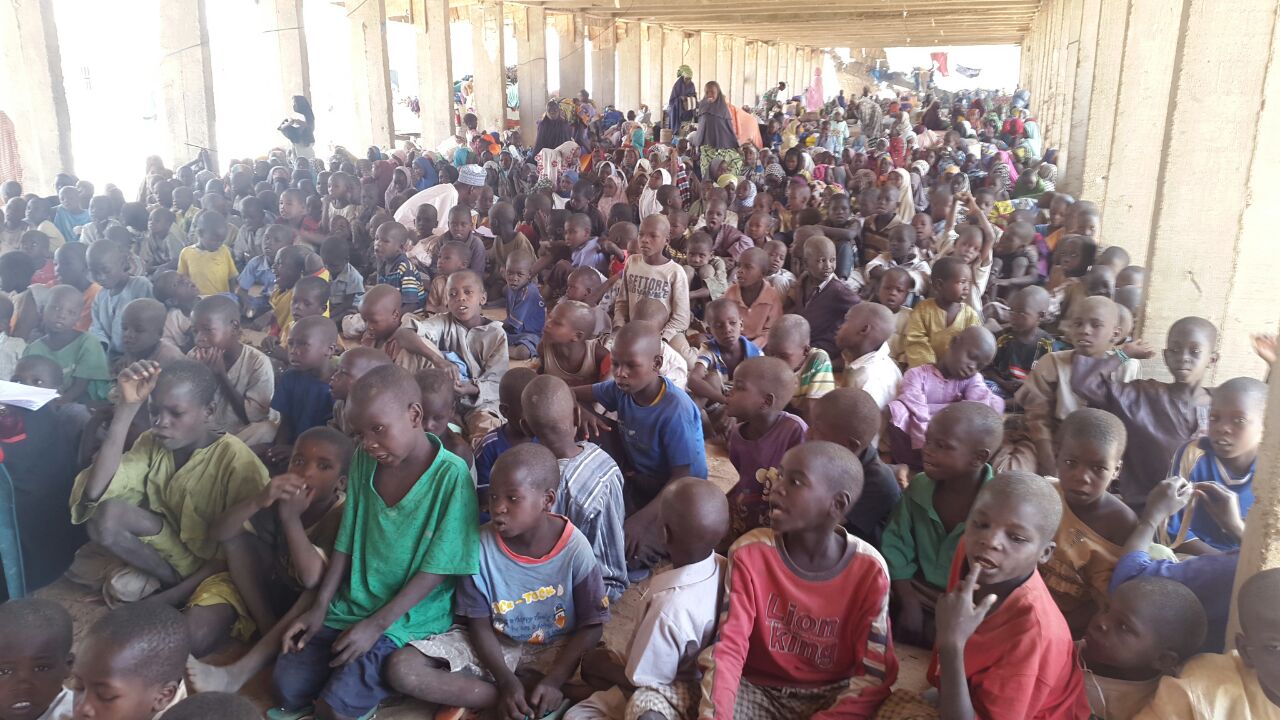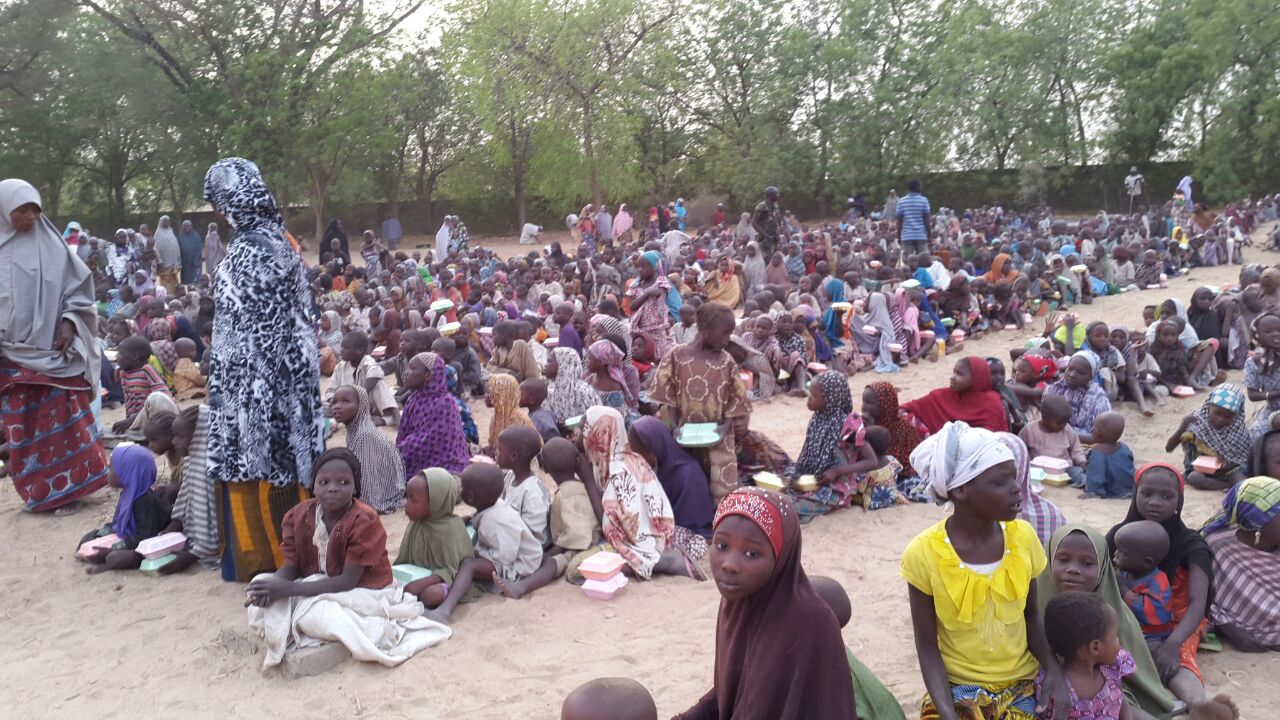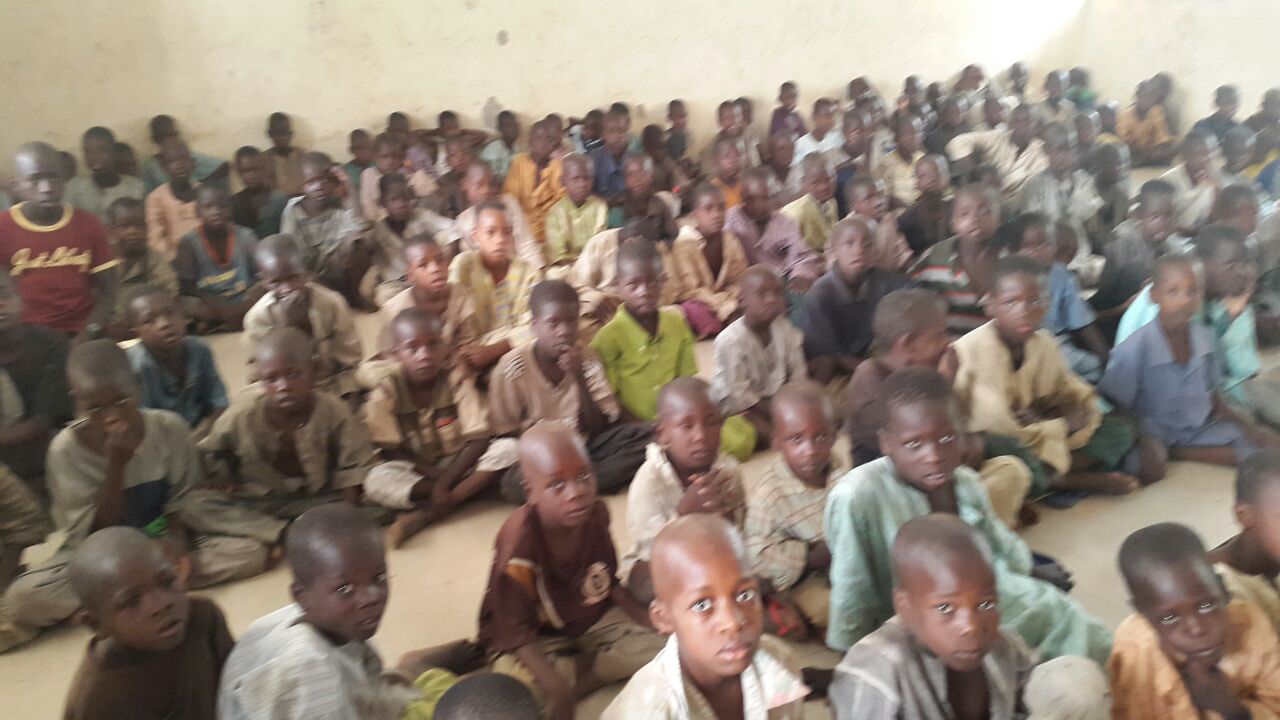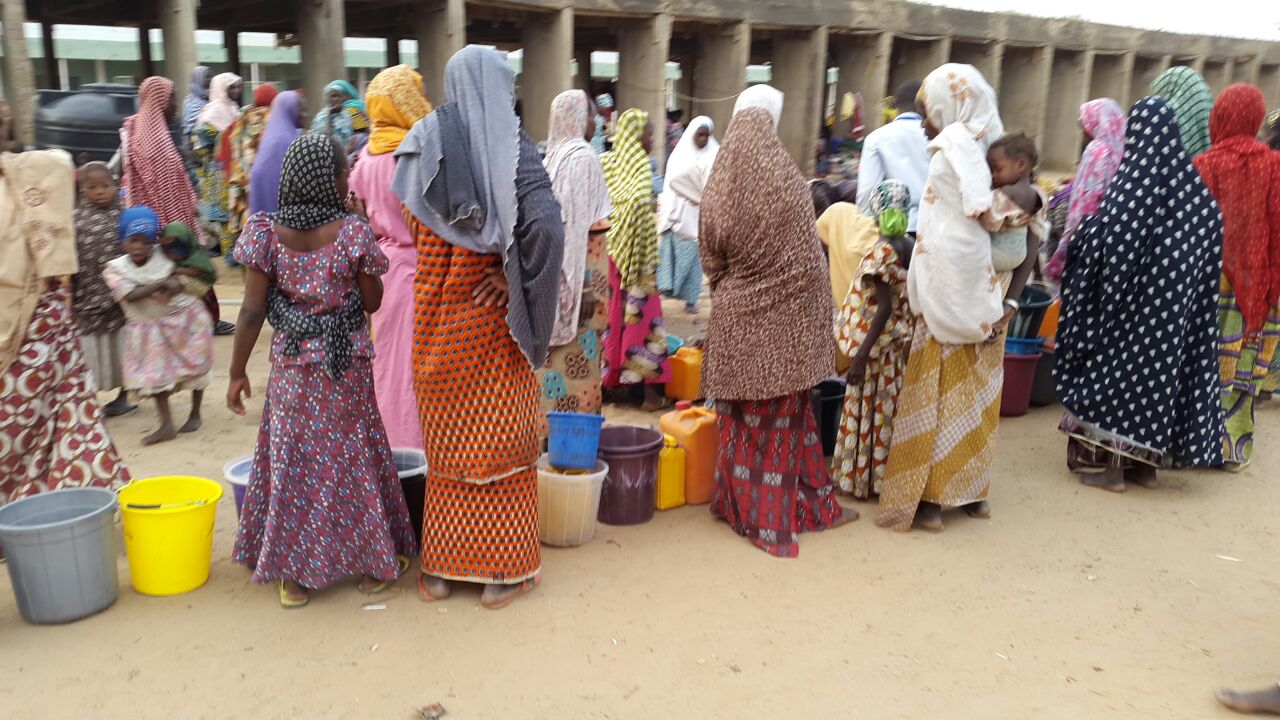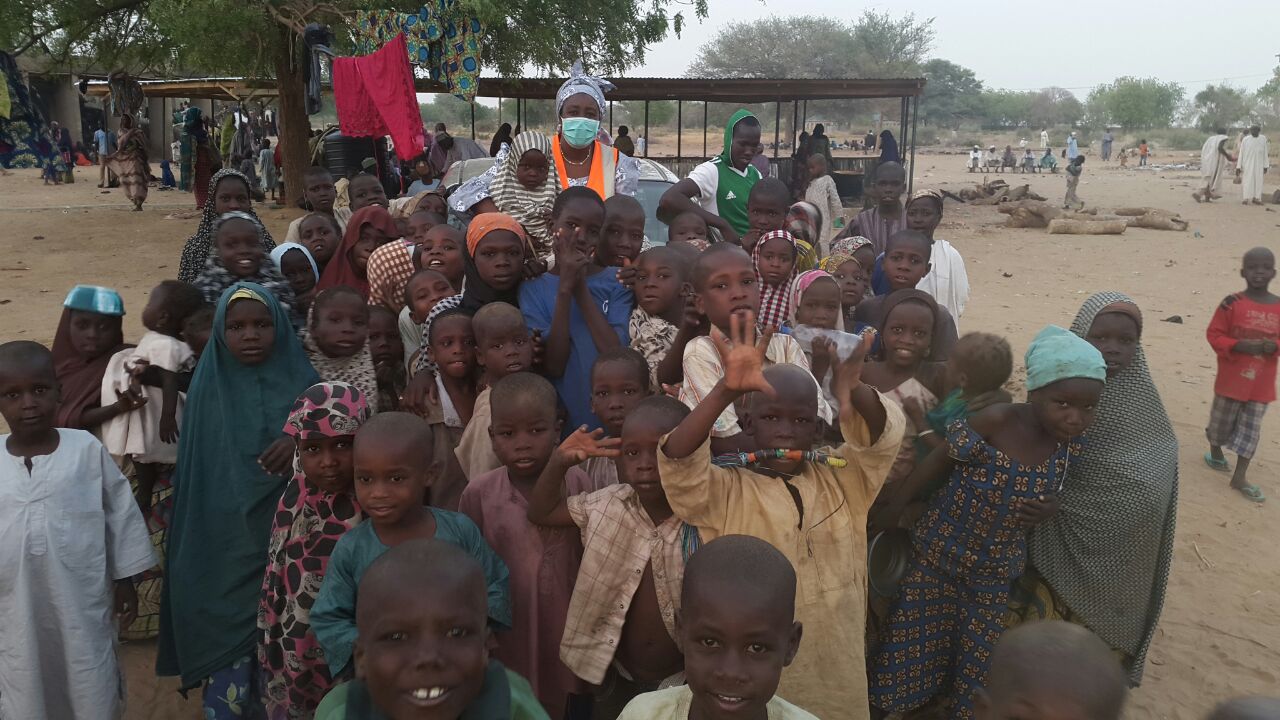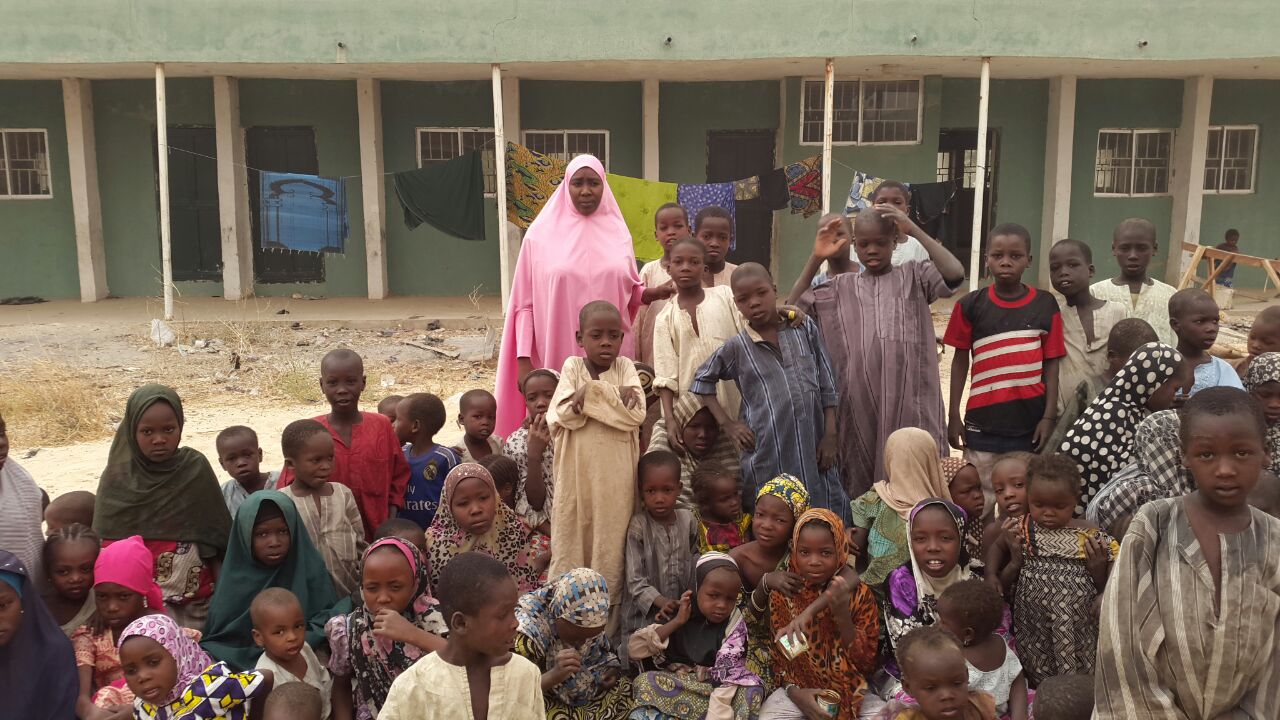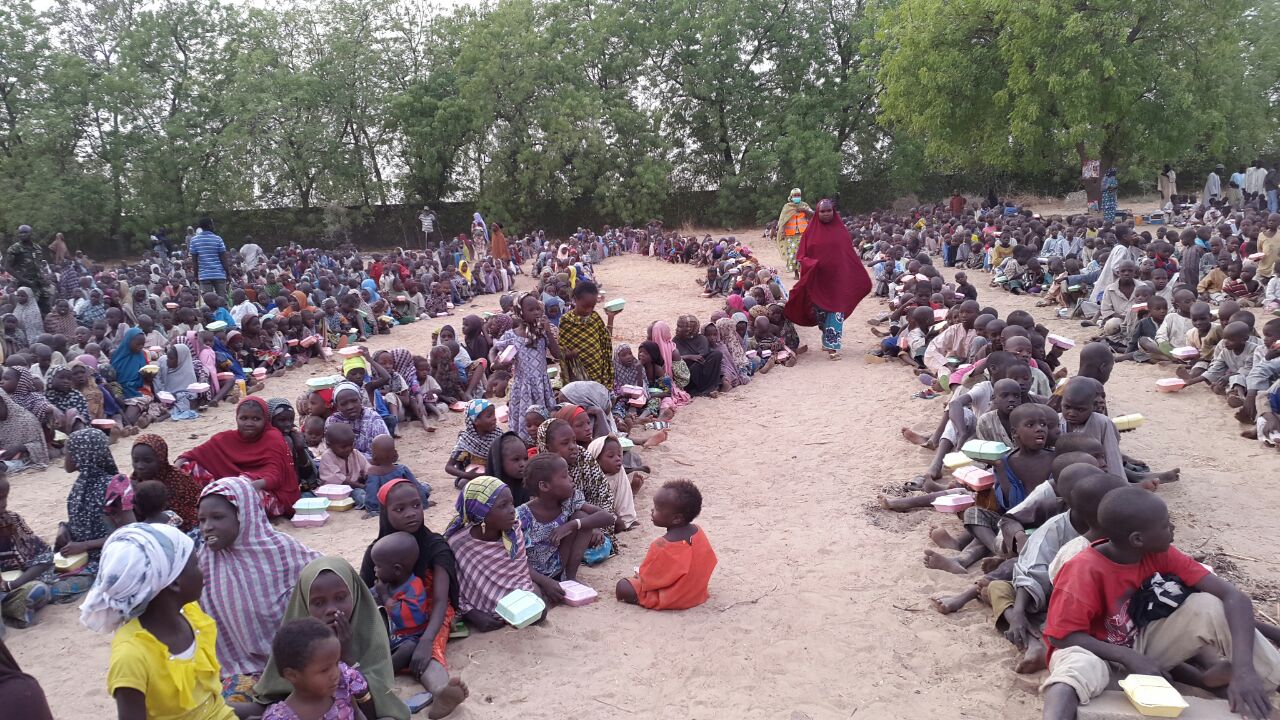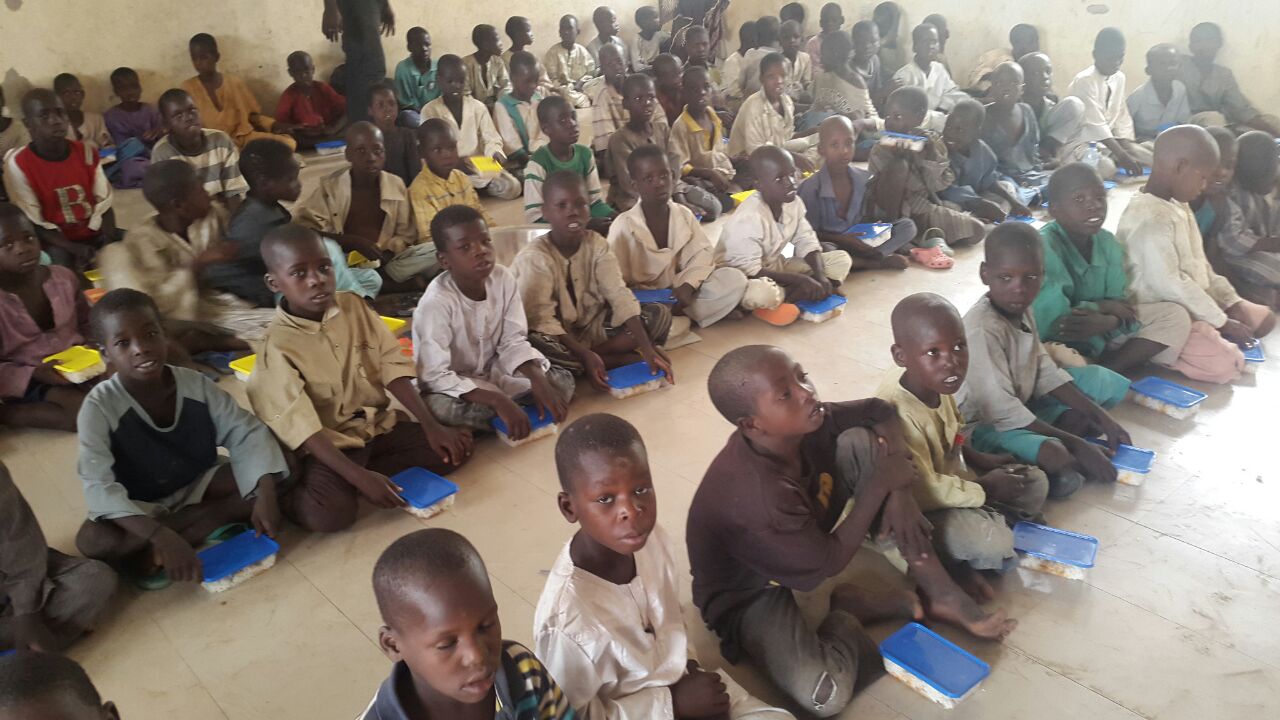In April 2015, CNN published a heartbreaking report about the seamless ease with which children, orphaned by Boko Haram insurgent attacks are being sold by the administrators of makeshift Internally Displaced Persons (IDPs) Camps in Yola, the Adamawa State capital.
Owing to the incessant raids carried out by the insurgents in he North East, many of the children are left to their fate, with many of then ending up on makeshift IDP camps which have sprung up in several areas in the troubled region.
Many of the camps, which ought to provide succour for the children are said to be cover ups, used by traffickers to make money off the sale of the orphaned children.
The transaction itself does not take long to complete, as all that is required is the for a child to be sold is a simple pointing of the finger and exchange of cash, in the case of the CNN reporter, $500 (about N100,000) for two children! No paper work, no background check on the “foster parent,” just a simple verbal reassurance was all that qualifies the buyer for the trade .
With the ease with which the transaction, it can only be imagined how many children have been sold off to unscrupulous elements, given that statistics have it that over a million people have been displaced by Boko Haram attacks, with half of that figure said to be children.
More heartbreaking still is the fact that no back ground check is made on the buyers before the trade is effected as the children might end up with God-knows-who, ranging from paedophiles, child traffickers, prostitution ring cartels and ritualists.
More scary is the fact that these innocent orphans may end up being sold to the Boko Haram insurgents themselves, given that an increasing number of children are being used as suicide bombers in recent times.
Following the CNN report, The Trent investigations have proven that the trade in orphaned IDPs continues to go on unabated.
After several enquiries, The Trent was able to establish communication with a middle-man in the heinious child-sale ring “based” in one of the IDPs in Borno State.
After several exchanges, a price was agreed on for a 10-year-old boy – N60,000!
Efforts to contact the National Emergency Management Agency (NEMA) over the disturbing situation have been unsuccessful as lines have not been able to go through as at the time of filing this report.
Asides the trade in orphaned IDPs, there is also the unsavoury humanitarian situation at the IDP camps, with the camps lacking adequate facility – healthcare and otherwise – in comparison to the growing number of IDPs flooding into these camps, especially with the renewed spate of attack carried out by Boko Haram.
Social activist and TV presenter, Kayode Ogundamisi recently wrote an open letter to Vice President Yemi Osinbajo intimating him on the exploitation of IDPs.
The letter read:
Dear Vice President Yemi Osinbajo,
On Exploitation of Internally Displaced Persons in Nigeria
Please find below reports from whistle-blowers who contacted me and send daily photographs (Find Attached) regarding the conditions of Internally Displaced Persons across 17 camps in Borno State.
I am informed that your office plays a supervisory role in agencies connected to the welafer of IDP’s in Nigeria and I humbly Request your urgent Intervention.
Forced Relocation
Internally displaced persons from the conflict caused by the terrorist group Boko Haram are dispersed in various locations across Borno State. Having been forcibly removed from their homes, the IDPs have walked miles to the find safety and succour in the capital city of Maiduguri.
Some walked for days from Monguno, Bama, Kukawa, Ngala, Damasak, Damboa, Jere and a host of other small villages from across Borno State. The numbers of individuals fleeing from Boko Haram is increasing daily. Internally displaced persons figures have issues of reliability in Nigeria hence exact numbers are inconclusive. But walking to Maiduguri has become the only option as more and more troop in.
Dashed Hopes
But this mass relocation to Maiduguri has resulted in overpopulation in the already underdeveloped, almost impoverished, town haunted by years of bombings.
Further compounding these issues is the minimal to almost non-existent electricity, closed down businesses, saturated hospitals and a wary populace.
The fleeing communities have met a new set of problems in the host town they have moved to.
First, they are lodged in secondary schools or uncompleted buildings. There is no running water, no mosquito nets, no protection from the harsh elements in a town where the temperatures can go up to 37 degrees Celsius, no electricity, no safety from more threats. The camps are overcrowded, run down and are struggling to accommodate more. The living conditions are atrocious, unhealthy, and dangerous.
Some IDPs are moving back to their villages out frustration. And the villages are the most dangerous.
Added to the terrors of seeing relatives, parents and whole communities killed, the camps they are currently lodged in exposes them to the possibility of more exploitation as they are open to any kind of threat.
Most camps are unguarded. The camp in Dalori is close to Konduga, a dangerous territory close to Sambisa Forest. The camp in the Government Girls Secondary School, Maiduguri has better security as it is in the centre of town. Other camps aren’t faring well.
Health
Malnutrition in both adults and children is at an alarming rate. The worst affected are children. Arriving with other health conditions, mental and physical, the most obvious is malnutrition.
The signs and symptoms have been recorded by an April 2015 UNICEF in a report titled ‘Missing Childhoods’. The report states that the children in the camps showed an 18 present threshold of malnutrition which is above the globally recognised emergency threshold of 15.
The situation is dire. Further health problems exacerbated by the ill-equipped and unhygienic camps are malaria, typhoid, cholera, malaria and high blood pressure. Polio and measles and still endemic. A major public heath concern for children. More ailments are undiagnosed as there are no health checks carried out in some camps.
The most neglected of all health issues is the psychological impact this trauma has had on the individuals. Undiagnosed and undocumented depression, post-traumatic stress disorder is clearly visible in a number of IDPs in a few camps visited.
There were also issues of sexual abuse which necessitates an important investigation. If neglected it will create health problems such as STDs and the dreaded HIV.
Corruption
With women coming in pregnant after enduring months of rape from the terrorist groups, malnourished children and traumatised adults, it is a humanitarian crisis in Borno especially the state capital Maiduguri. Men lucky to have survived have nothing. This triggered a response by the Federal, State government and International organisations to render humanitarian support. Officials were recruited to cater to the problems of the displaced. As is characteristic of Nigeria, there is no attention to detail or sincerity in providing the much needed necessities for the health and well-being of those entrusted unto the humanitarian groups such as NEMA.
The numbers of the IDPs were exaggerated, funds redirected and the self-gratification began. The food allocated to the IDPs is reduced in numbers by officials in most cases, the items meant for the victims are carted away by officials after inspection by the government officials, materials provided are not handed over.
The recent visit by the Vice President was silently used as a time for more self-enrichment as officials had relatives disguising as IDPs to collect materials distributed.
The level of exploitation of IDPs has reached staggering heights. UNICEF reported receiving only 15percent of the US$26.5 million for humanitarian support in Nigeria. In Nigeria’s response to the humanitarian crisis, the Victim Support Fund raised 58.79billion Naira in 2014. But there are no images of solace being provided for its beneficiaries.
Photos of mistreated IDPs provided with minimal food have surfaced. There are no images of clean water, shelter or healthcare being provided across every single camp as new camps surface.
Corruption among officials has been anonymously reported in 22 camps fully functioning in Maiduguri.
In response to allegations of neglect and mismanagement, NEMA released photos on Twitter of a few good deeds on 6th June, 2015 in Yola, Adamawa. This has raised eyebrows. These efforts should have been presented to the public in every camp every single day in across the North East as well as Borno where IDP numbers are heavier. Daily digital documentation is necessary. And currently, the EU has announced a donation of 4.7billion Naira to support IDPS. The fear of further embezzlement and self-enrichment prevails.
Looking to the Future
With recent attacks across North East Nigeria, IDP figures increasing, awareness campaigns forging ahead full force that help raise money for victims of Boko Haram, the new scourge facing the nation is the mismanagement of allocations. If the most important of all basic necessities such as food is being carted away by officials, what else is going on in these camps unbeknownst to the nation? And the question is not rhetorical. Thorough investigations need to be carried out.
This report has succeeded to highlighting a few problems. Below are recommendations based on anonymous inspection of various camps across Borno:
· In terms of shelter, semi-permanent and detached housing will not suffice. The allocations for welfare can build permanent sites where IDPs can find solace. If that is far-fetched, there are tents which can withstand the elements. These tents are being used in Arab Countries such as Saudi Arabia to house pilgrims during hajj. This can be a beginning.
· The unhygienic nature of the current shelter being provided is atrocious. A healthy living environment is very vital for resettlement of IDPs.
· The food provided is sadly insufficient and does not meet the requirements for proper growth and development of young children or the sustenance of adults. A balanced diet is extremely essential.
· Daily or weekly health checks for every individual to ascertain who is in need of medical attention. A mobile health clinic should always be on standby as there are can be emergencies.
· Although UNICEF reports that 60,000 children have received psychological support, there are no measurements to test whether the victims are fully rehabilitated or not. Psychological health assessments, mental health interventions and evaluations should be on-going and continuous as IDPs figures escalate in Borno.
· The most important of all is the safety of the IDPs. Some camps are unguarded and open to all kinds of threats and dangers. This should also be a focus.
· The education of the victims is virtually non-existent is some camps. There is fear that a lack of preoccupation might result in juvenile delinquency, drug addiction, prostitution and continued destitution. Spaces for learning should be created.
· The theme of this report which has been the current situation of IDPS and the mismanagement of funds is of paramount importance as it will hinder, and if care is not taken, meeting the needs of the victims. The Presidency should thoroughly investigate and implicate those entrusted with the well-being of our citizens for embezzling the funds of our citizens.
The task of providing humanitarian support is daunting and multi-component. But if a blind eye is turned to the plight of our displaced, it will cost our nation a great deal. This report only highlights a few issues observed in a few camps. More reports will follow to shed light on the humanitarian crisis and the embezzlement will be further highlighted.
Kayode Ogundamisi
Signed for Whistle-blowers
Click on any image to enlarge.
The Global Slavery Index says Nigeria has about 8 million child labourers are are engaged in forced labour across the country.

